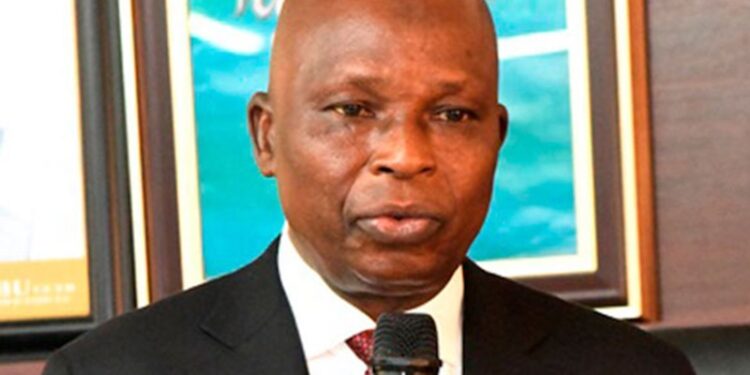The federal government is planning to impose sanctions on states that fail to grant autonomy to local governments. This move is aimed at ensuring that local governments receive their allocations directly from the federation account rather than through state governments.
The Attorney General of the Federation, Mr Lateef Fagbemi, who disclosed this in Ekiti on Tuesday, said there was no going back on the Federal Government’s plan to implement the Supreme Court ruling on LG autonomy.
Currently, no fewer than 164 LGS in eight states have yet to conduct elections. There have been reports President Bola Tinubu may implement the Supreme Court ruling by the end of October. This means the affected LGs may have their federal allocations seized by thefederal governmentt, in line with the court ruling.
The LGAs that have yet to hold their polls are in Ondo, Osun, Katsina, Cross Rivers, Nasarawa, Abia, Ogun and Zamfara states.
According to findings, there are 18LGAs in Ondo, 30 in Osun, 34 in Katsina, 18 in Cross Rivers, 13 in Nasarawa, 17 in Abia, 20 in Ogun and 14 LGAs in Zamfara.
The Supreme Court ruling indicates that it is illegal and unconstitutional for governors to continue to receive or retain funds allocated to the local councils under the State and Local Government Joint Account.
Last week, Anambra State Governor, Prof. Chukwuma Soludo, after signing the Anambra State Local Government Administration Law, warned that granting full autonomy to the country’s 774 LGs could lead to “humongous chaos,” arguing that such a move would not result in sustainable development.
“The absolute autonomy to the 774 Local Government Areas in the country is an impossibility. In fact, it is a recipe for humongous chaos. The attendant challenges before the issue of local government autonomy are such that would certainly deepen the fate of the system and spell doom for the expected beneficiaries of the process if not well planned,” Soludo stated.
But Attorney General of the Federation, Fagbemi, while speaking in Ado Ekiti, the Ekiti State capital on Tuesday, said implementation of the apex court verdict was sacrosanct.
Fagbemi, who said he would not comment until he saw the law, stated, “Are they going to re-write the judgment of the Supreme Court? When we get the full tenure of their law, we will take appropriate action.”
He dismissed insinuations that a three-month moratorium was given to state governments before the implementation of the Supreme Court judgment, which granted autonomy to the local governments.
The AGF said, “Unfortunately I know it has been in the media that they were given three months, which is not the position. The position is that, yes, the judgment was delivered, but we felt that there is a need to put some things in place before the full implementation. That it is going to be implemented is sacrosanct; nobody can run away from it.
“The question is, are there some things we need to put in place such that we will not run into problems when we start the full implementation of the judgment of the Supreme Court?”
He added, “There is no moratorium; moratorium for what? You know that before now, some states have slated their elections for beyond October.
“What we want to look at is, were they genuine when they said they were fixing the election beyond October? When did they first moot the idea? What is the law of their state, however imperfect it may be? What does the law of the state say?
“For instance, in the conduct of elections in some states, they will give six months’ notice. If they don’t do that, we know that no matter the kind of election you conduct, the court will nullify it. If we now say we just want to go the whole hog, then there will be a problem.
“We don’t want to go back to square one; that is why we are treading cautiously; otherwise, I am saying categorically that there is no moratorium for anybody. I know that one or two states that are trying to commit contempt of court.”
Under former President Muhammadu Buhari, the Nigerian Financial Intelligence Unit issued a regulation, effective June 1, 2019 banning transactions on State and Local Governments Joint Accounts. Funds were sent directly to the accounts of the local governments. It also limited cash withdrawals from local government accounts to a maximum amount of N500,000 per day with penalties for banks that failed to comply.
However, state governors, under the aegis of the Nigerian Governors’ Forum, kicked against this regulation and the NFIU eventually capitulated.
The seven-member Supreme Court panel, led by Justice Garba Lawal, ruled that it was illegal and unconstitutional for governors to manage and withhold LG funds.
The apex court also directed the Accountant-General of the Federation to pay LG allocations directly to their accounts, as it declared the non-remittance of funds by the 36 states unconstitutional.
Also, on August 20, the Federal Government instituted a 10-member inter-ministerial committee to implement the Supreme Court’s ruling on local government autonomy.
The committee members include the Minister of Finance, Wale Edun; AGF Fagbemi; Minister of Budget & Economic Planning, Abubakar Bagudu; Accountant-General of the Federation; Oluwatoyin Madein and the Governor of the Central Bank of Nigeria, Olayemi Cardoso.
Others are the Permanent Secretary, Federal Ministry of Finance, Mrs Lydia Jafiya, the Chairman, Revenue Mobilisation Allocation & Fiscal Commission, Mohammed Shehu, and representatives of state governors and the local governments.
Revenue allocations to the 774 LGAs surged by 46.91per centt to N2.35tn in August 2024 from N1.599tn recorded in August 2023.
According to the data, N288.93bn was distributed in January, N278.04bn was given to the LGAs in February, N267.15bn in March, N288.69bn in April, N293.82bn in May, N282.48bn in June. The allocation further increased to N343.7bn in July and N306.53bn in August









